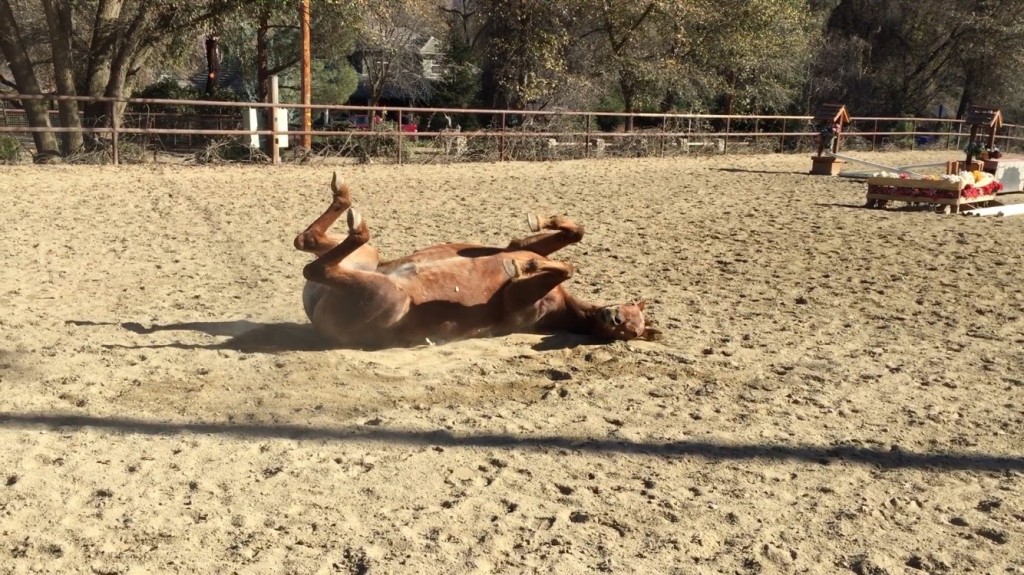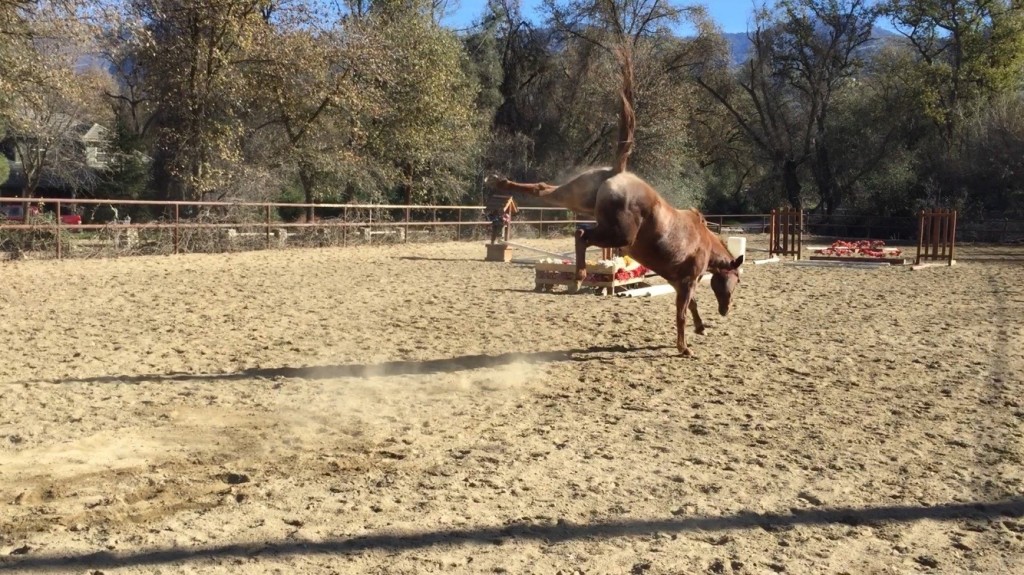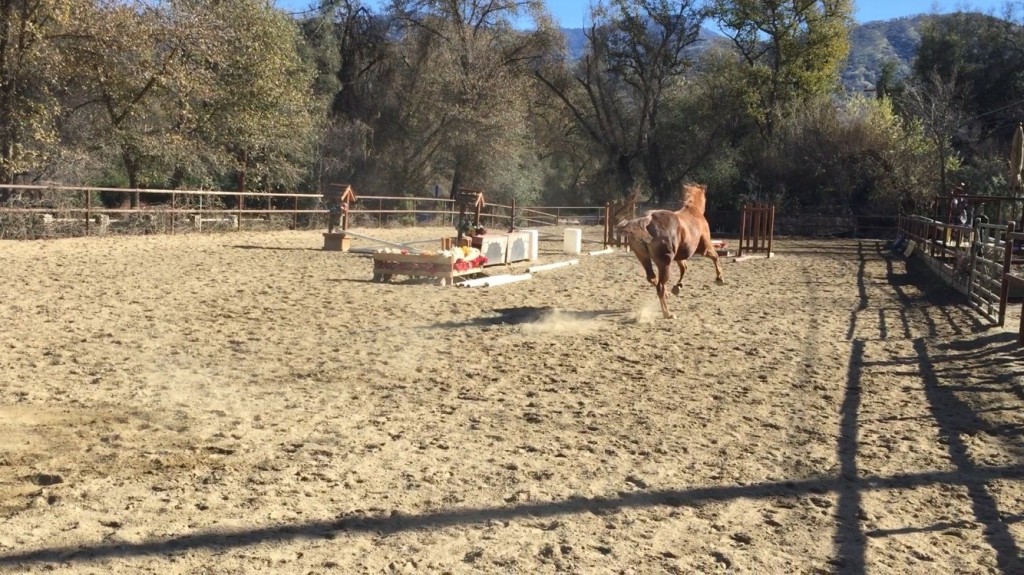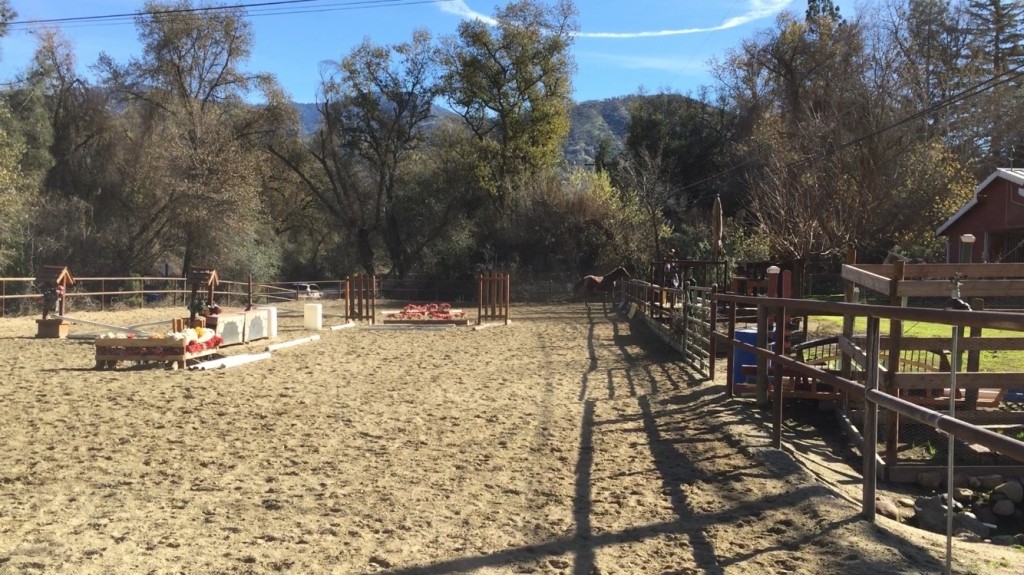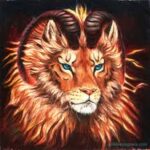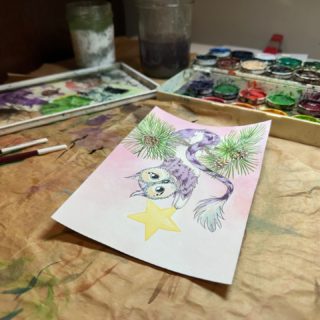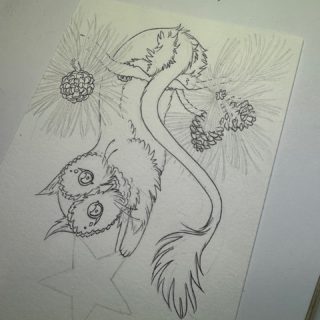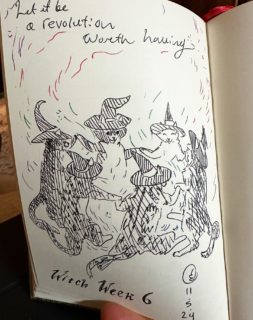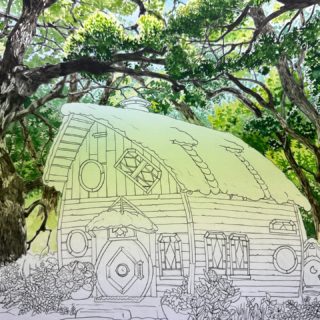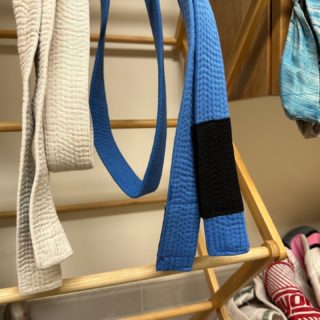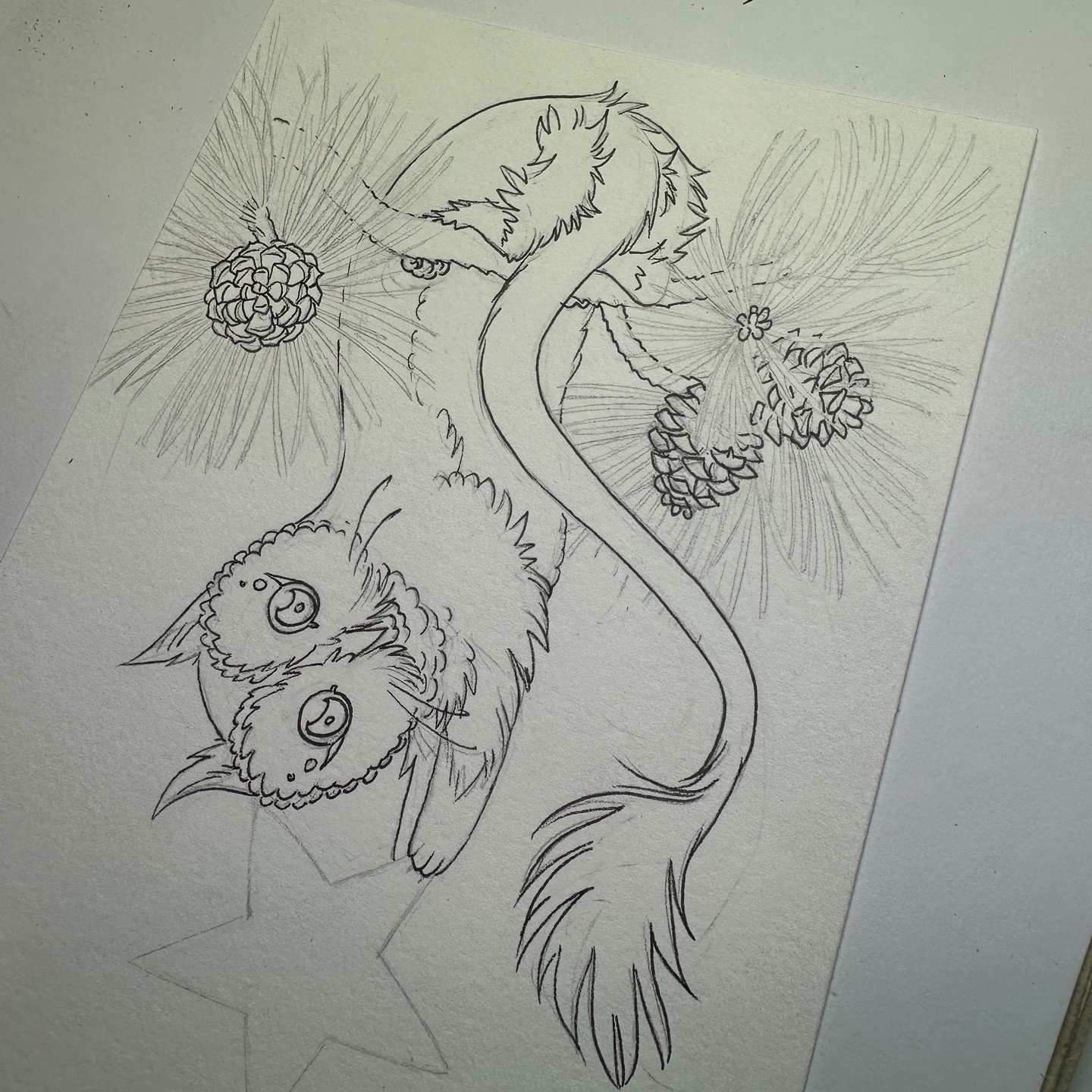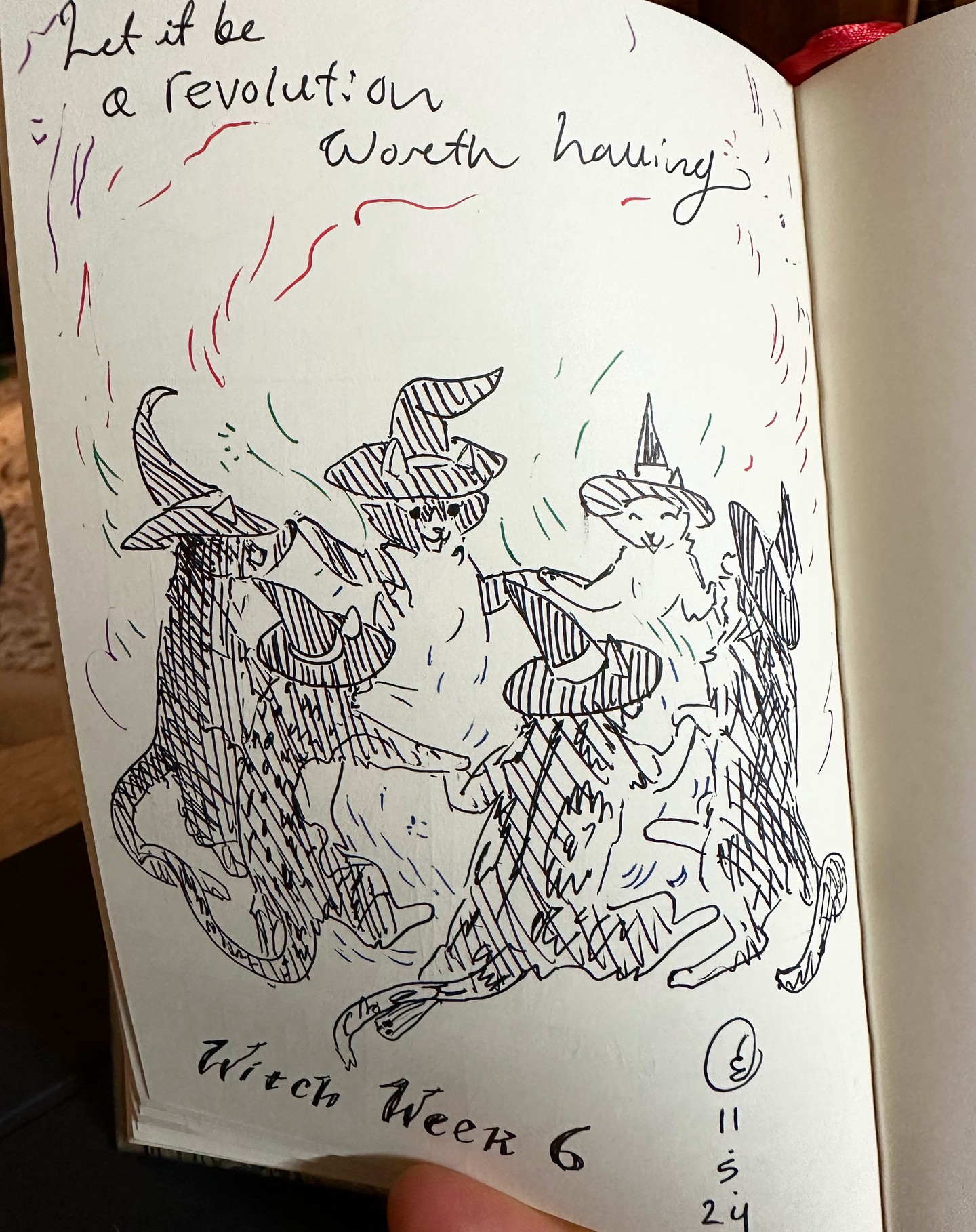I had to put my horse down yesterday. It has been a hard couple of weeks, and I am a cauldron of conflicting emotions right now. My horse—her name is Emmy—has been a huge part of my life for almost twenty years. I’ve had her since she was six and I was eleven, and in many ways she shaped the human being I am today. It is, both literally and figuratively, a bigger deal than a dog or a cat dying—which as any pet-owner will tell you, is more like losing a family member than a mere animal.
I’ve loved horses for as long as I can remember. I took a few lessons when I was four, but as my family lived in the Bay Area at the time, actually owning a horse was impossible. Then we moved to the country. This was in 1993, and I am told I would wander around singing “Somewhere out there, a horse is waiting for me…” to the tune from the American Tail song.
At that time, on the other side of the continent, a little sorrel filly came into the world. Half Quarter Horse, half Appaloosa, she was registered as the latter under the name Empress of King and eventually shipped off to the World Show in Texas. There she was purchased by the woman who had, by that time, become my riding instructor. Three years later, when she went up for sale, my childhood dream came true, and I became the owner of a very real, very opinionated horse. We have been together ever since. Until now.
Now it is sixteen years later, and for the first time in my adult life I am facing a world without Emmy in it.
It is always difficult when someone you love dies. With horses there is the particular difficulty of when to call it a day and have them euthanized. There are a lot of reasons to do this, ranging from the coldly practical (one cannot afford the treatment necessary for their continued survival) to the pragmatic (the horse is terminally ill and will die a slow and painful death otherwise). Nothing is easy and everything hurts, and even though I’d seen other horses die, even though I’d watched other horse owners go through this, Emmy was my first and only, and the experience was a new and frightening one.
But not unexpected. Over the course of her respectable life Emmy has pulled numerous stunts that left me sick and shaking and wondering if This Was It. Whether it was the chronic lameness that affected her left forefoot (the result of an injury sustained from show jumping and the reason she got to spend the last thirteen years of her life as a rambling trail horse) or one of her recurrent bouts of sand colic could have easily culminated in that last critical visit to the vet. They gave me the opportunity to think about the inevitable end, and consider of the few options that were within my control, what I would want to do.
Knowing what you want to do is different from actually doing it, however. The doing is harder. And it was a bittersweet consolation that nothing that I could do something about actually got her. It wasn’t her problematic feet or testy gut that proved her downfall, but that unavoidable killer: a Sudden and Unexpected Cancer.
What began as a mysterious infection that defied diagnosis was eventually identified, after a biopsy, as cancer. When the word came, Emmy was already on serious painkillers and steroids, and it was mostly a confirmation of what we already suspected. We had known something was wrong since late April, but by the time we had the diagnosis it was clear she didn’t have much time left. Which stung, because she was still very much Alive and spirited and full of the Emmyness that made her such a difficult horse for some people—and the perfect horse for me.
It is a particular kind of horror to see the end approaching. At the same time it gave me the chance to get a jump start on the grieving process, and it helped that the person I was grieving was still around to nicker at me and blow snot on my shirt.
It came in waves. One moment I would be fine—the next a fountain. It hurt, but in that sharp, pure way—like cleaning a wound. The weekend after we got the word I went house-sitting for someone with an outdoors bed. It was a strange kind of comfort, getting to sleep under the stars and step, for a while, out of my own life.
I spent more time with Emmy during the last week of her life than I had since we were showing. Even in the country I was obliged to board her, and lately my creative work has impacted my time such that I could only ride her once a week. At the end, however, she needed medication twice a day, and lots of help keeping cool in our California summer weather. The eleven-year-old me would have whined incessantly and thrown fits over the amount of work involved. The twenty-seven-year-old me was downright thrilled to have the excuse to see so much of Emmy.
It felt like coasting. Like the completion of some long, arduous project. Caring for a horse takes a lot out of a person, and it’s not uncommon for horses to be sold once the glamour wears off, or to be outright abandoned. Even if I hadn’t loved Emmy with all my heart I wouldn’t have done that to her. I was determined to be the best owner I could be, no matter how much it hurt or how early I had to get up or how unpleasant it was to force-feed her banamine paste. I cleaned stalls for lunch money for ten years and grew to resent it. Cleaning Emmy’s stall felt like a privilege. For all I was heartbroken that This really Was It, it came with its own strange sense of achievement. I had made it, in a way that many people didn’t. I hadn’t lost interest or given up or run away. I was still here, with my horse, and wouldn’t have it any other way.
If there can be an advantage to death by cancer, it is that it does give you at least a little grace period to say good-bye. To do the things that need to be done; to prepare. Strangely, as far as me and Emmy were concerned, there was nothing left to do. We had ridden the trails. We had jumped the jumps. Swum the rivers. Pictures had been taken and carrots had been eaten. We had been doing all the things we wanted to do for the last decade, and I could say with complete confidence that I had no regrets—save that the end had come rather sooner than I would have liked.
There were practical considerations to be taken into account: two things I had decided long ago: that if Emmy was to be euthanized, I was to be there, and that her body would not be burned or buried, but studied. Luckily my vet was more than happy to arrange both things, but it was still an added burden on top of everything else.
It made me feel sick to my stomach to think of taking Emmy (still so bright-eyed and perky) to what was essentially an early death. Even after she began to visibly decline it was hard. I have seen animals who are ready to go—they get a dull look in their eyes which tells you they are not so much going quietly into that good night, but crawling desperately toward it. Emmy never looked like that, which in a way was a good thing. The whole point of euthanasia is to prevent needless suffering, and it wasn’t as if she was in any way healthy. The only thing keeping her head up at that point was a lot of medicine that, in the last days, she absolutely hated.
It felt like going up against a cheese grater. Everything I had done as a horse owner up until that point had been with the aim of helping her get and stay better. To turn around and say “this is enough, it’s time to end,” felt like pushing my face into a torrent of ice-cold water. It was All Wrong.
It is one thing to know what you have to do; it is another thing to do it.
What I did was realize that my role was no longer that of her owner. I was now her psychopomp; her ferryman; her escort out of this world. Thinking of it like that allowed me to keep myself together long enough to fulfill my final responsibility.
We walked down to the gates of Tartarus together and I let her go on the banks of the Styx. I handed her off to a death that came softly, on a bright summer morning, before the air grew oppressively hot and while the birds still sang.
Death brings a lot of nevers. Never again will we gallop over the hills, weaving perilously between trees. Never will I crack my head open on said trees or take a fall. Never again will I greet her in the morning with a fresh flake of hay. Never again will I be interrupted from a peaceful evening with word that my horse is convulsing on the ground, and I must get over to the ranch immediately. I will never wash her tail again. I will never be struck in the eye with said tail. Never will I see her running, for she has fallen: I watched her go. Never again will I see her fall: for she is over, her fire extinguished.
She carried me, but in many ways she was also a burden, and one I was not always happy to bear. Now she is gone I miss the weight, and I find myself floating free and lonely, cut loose from my anchor.
Somewhere out there perhaps there is another horse—probably a mare—who is a little too temperamental, a little too opinionated, who likes things her own way and has a tendency to buck. Maybe, one day, we shall find each other, and begin the journey again.
But she will have to wait a while longer.
For now, I am finished here.
